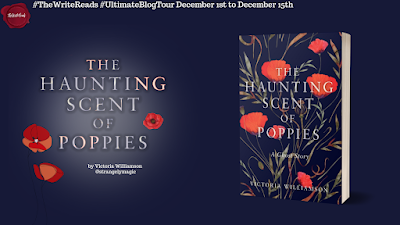This post contains affiliate links. If you click through and buy I will receive a percentage commission at no extra cost to you.
Here we are again, at the close of another year. How has 2023 treated you? Well, I hope.
I’m not one for planning my upcoming reads much, but I’m likely to be reading Unwell Women and The Moonstone soon, both of which have been sitting patiently on my shelves for too long. I also have excellent recommendations from my bookish friends to see me through the next twelve months. Have you read any of them?
My theatre consumption this year has been varied - from the brilliant Hamilton to the sweet Winnie the Pooh Musical and the bonkers The Great British Bake Off Musical. Many an enjoyable night out has been had. My exhibition game has been lacking somewhat, but the highlight was likely The Rossettis at the Tate Britain, one I would gladly have spent more time in. The Maria Bartusová at Tate Modern was also fascinating and thought-provoking. In the new year I’m looking forward to heading to the Royal Academy for Impressionists on Paper.
I’ve not travelled as much this year, but was lucky to have an incredible trip to Germany in December. Highlights include visiting Neuschwanstein Castle. Yes, it’s an unoriginal day trip, but there’s a reason it’s popular. Perched on a crag in the mountains, the views from it are utterly breathtaking. The interiors are incredible, inspired by the Middle Ages, they are lavish and beautifully crafted. You can only visit by guided tour, and it moves you through at quite a pace, but it is absolutely worth it. (If you’re thinking of going, I’d recommend taking a Flixbus from Munich for around €14 rather than the organised tours that cost four times that and don’t offer much more than transport). Going up Zugspitze was also a highlight. Having had heavy snow a few weeks before we visited, it was a frozen winter wonderland. The Alps stretch for as far as the eye can see, and the views take in five countries. It’s expensive but absolutely worth it, and is a full day activity. A day trip to Innsbruck from Garmisch-Partenkirchen was a lovely unexpected addition to our time there. The bus ride was so beautiful as it winds through the mountains, it was worth the €6.99 for the views alone. Innsbruck itself is a beautiful city, surrounded by mountains, and dressed in its finest for Christmas.
 |
| The view from Neuschwanstein |
I was also able to spend a few days camping in Scotland earlier in the year. It rained a lot and I came back with nigh-on 70 midge bites, but it was a refreshing trip. We based ourselves in Luss, on the western shores of Loch Lomond, which proved an excellent base for exploring the area. A ferry across from Tarbet to Inversnaid led to excellent walking routes, and on return, the walk from Tarbet to Arrochar via the Three Lochs Way was a treat. My highlight, though, was kayaking to one of the small islands. It was a day with storm clouds threatening, but the beauty and peace of the island, draped in purple rhododendrons, was something my heart longs to return to. We’re hoping to spend more time in Scotland in 2024, walking the West Highland Way. I hope that you’re able to take a break in the coming year and enjoy the rejuvenating benefits of whatever type of holiday you prefer.













